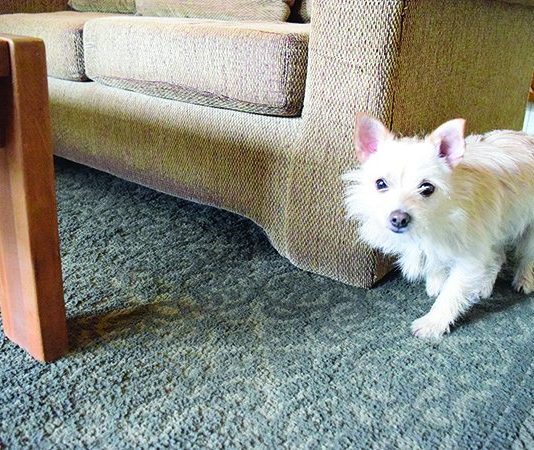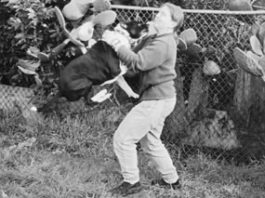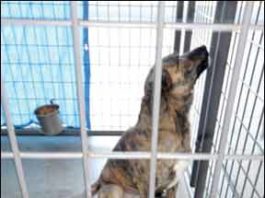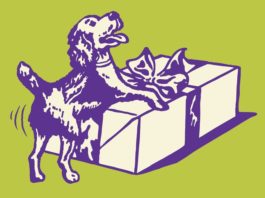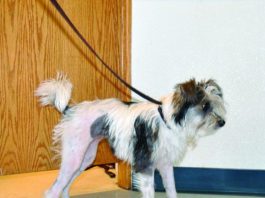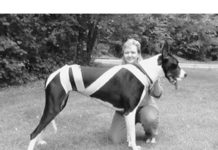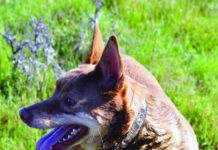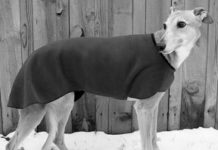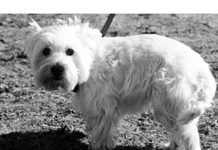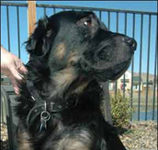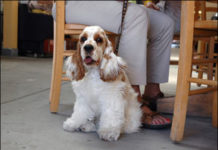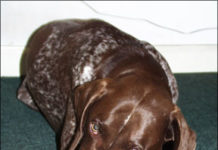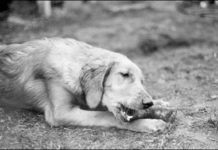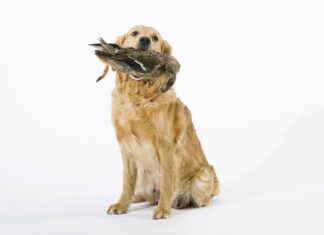TTouch Practitioners Explain Canine “Body Wrapping”
Body wrapping" dogs looks kooky
How to Deal with a Dog Who Eats Poop
Most of us find a dog's habit of eating feces to be the most disgusting thing that a dog can do. The clinical name for this behavior is coprophagy (pronounced kä - prä - fey - je), from the Greek words copro, which means feces, and phagy, which means eat. The habit is not just revolting to us humans, it's also potentially harmful to the dog's health.
Moving with Dogs: Everything You Need to Know
Moving to a new house regardless of whether it's down the street or across the country is stressful for anyone, but for dogs it can be especially confusing and upsetting. I just moved my three dogs (ages 16 years to 21 months, 10 pounds to 100 pounds) from New York City to Portland, Oregon. The move has been a bit hectic, but my biggest priority has been creating stability and consistency for my dogs.
Involuntary Urination
When my dog Popcorn woke up one morning many years ago in a puddle of urine, I panicked, certain that only a deadly illness could cause this perfectly housetrained dog to wet her bed. I rushed her to the vet, where he did a thorough physical exam and urinalysis. I can still remember the relief I felt when my vet told me it appeared to be a simple case of incontinence. As it turns out, incontinence, which is defined as involuntary urination, is quite common in dogs, especially spayed females, where about one in five dogs (20 percent) is affected.
Calmative Herbs for Canine Panic Attack Occurrences
Dark clouds boil on the horizon, and a slow rumble of distant thunder delivers a slight vibration in the window panes. Jake, a large long-haired Chow-mix, is already nervous. He paces the living room, wild-eyed and panting, his body trembling with anticipation of the first dreaded clap of thunder. When it strikes, he tries to hide under the coffee table, and just like last time, he is too big to fit. The very same vase that was glued together after Fourth of July is reduced to a heap of jagged shards.
Behavior Modification for Itchy Dogs
Excessive self-licking and chewing can be caused by a medical issue. It can also be a behavioral problem, a classic example of an obsessive/compulsive disorder. Either way, it's annoying to the dog's human companion, and dangerous to the health of the dog. Here are tips for dealing with dogs who self-lick and chew excessively. To begin behavior modification, determine your dog's stressors and start eliminating them. Make a list of everything?you can think that is stresses your dog even just a little bit, even if the stressors don't seem directly related to the licking. Your list might include thunder, small children, dogs on television, cats, riding in cars, visits to the vet, shock collars, medical issues, and many more. Most owners can identify between 10 and 20 stressors for their dogs.
Uncommonly Calm Canines
Most dog owners are pleased when their dogs are calm - even the owners of high-energy competition and working dogs, when those dogs are "off-duty." Some owners may go to great - sometimes misguided - lengths to achieve the coveted calm condition. Humans who understand the appropriate way to help a dog learn to be calm can make the difference between the canine companion who finds a lifelong loving home, and the one who ends up - sometimes several times in his life - gazing sadly out from the chain-link kennels of an animal shelter. Calm is a highly valued, hard-won, and sometimes transitory state in our own household. With four dogs in the Miller pack, two of them proud representatives of the herding group, calm is something we have to work at. We use the time-honored recipe of exercise, management, and training (and of course, lots of love) to help our canine family members be a peaceable pack.
Signs That Your Dog Has Stress
Learn to recognize signs of (and then reduce) your dog's stress. If possible, remove the stressor from your dog's environment entirely. For example, if he's stressed by harsh verbal corrections, shock collars, and NASCAR races on TV, you can probably simply stop exposing him to them. For stressors that can't be eliminated, a long-term program of counter-conditioning and desensitization can change the dog's association with a stressor from negative to positive, removing one more trigger for stress signals and possible aggression.
Postpartum Depression and Its Effect on the Dog
As a trainer and behavior consultant, I am always ready to provide all sorts of helpful information and internet links on the subject of bringing home a new baby to meet the dog. But I can honestly say that I never considered the emotional and hormonal component of the new mom and how it would affect her relationship with her pets.
Dogs and Puppies Chew For a Number of Reasons, Learn to Properly Channel This...
between three and six months of age. While the baby teeth are shedding and the adult teeth are erupting
Does Your Dog Have an Eating Disorder?
Anorexia, bulimia, and weird pregnancy cravings are common in humans, but did you know dogs have eating disorders, too?
Taking More Steps To a Calm Dog
Every behavior and training professional has seen her share of WCCS dogs. Some have developed their own programs to help humans help their dogs.


